Pandemic Brings Unique Educational Opportunities to WIU Biology Course
May 19, 2020
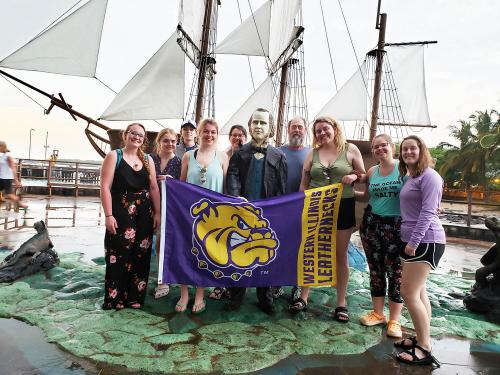
WIU students on the study abroad trip stand beside part of the Charles Darwin display.
[Download Print-Quality Image]
Editor's Note: This is the 14th in a series of feature stories about Western Illinois University faculty who are adapting and finding unique ways to reach their students during the COVID-19 Pandemic, and how their students are using the information they learn.
MACOMB, IL – When Western Illinois University Department of Biological Sciences Chair Ranessa Cooper took her students to the Galapagos Islands and Ecuador during the spring semester, the travel group made it back to the United States just days before the COVID-19 pandemic began a domino-effect of shutdowns and travel restrictions.
The tropical ecology study abroad class traveled to the two locations during WIU's Spring Break week, and Cooper's initial plan was to transition back to the classroom when the semester resumed. When the coronavirus struck the U.S., Cooper said the pandemic incorporated itself into the coursework, leading to world-famous researchers and a Pulitzer Prize winning author speaking to the class remotely.
Throughout the semester, Cooper's class had been reading the book "The Beak of the Finch."
"Interestingly, 'The Beak of the Finch,' which was published in 1994, had a prophetic line in chapter 18 that really resonated with our class," said Cooper. "Part of this chapter was addressing drug-resistant strains of bacteria and concerns about future epidemics. The line, from page 259, 'A new virus or bacterium can circle the earth in a matter of days,' could not have been more relevant than at present."
In April, Cooper reached out to Columbia University Professor of Medical and Scientific Journalism Jonathan Weiner, who is also the author of the Pulitzer Prize-winning book her class was reading. She also contacted Peter and Rosemary Grant, both emeriti faculty of Princeton University, who initially made Charles Darwin's finches famous with their field studies, beginning in 1973. All three agreed to meet with Cooper's class over Zoom to discuss the research and the book.
"Jon spent time with the Grants in the Galapagos and back at Princeton in preparation for the book, which was published in the early 1990s," said Cooper. "My class and I had been reading and discussing the book throughout the semester, along with regular lectures and the study abroad trip over spring break to the Galapagos. When I first contacted Peter, Rosemary and Jon, they could not commit at that time and asked me to follow up. I did, and all of our distinguished guests said, 'yes.'"
WIU graduate student John Nichols, of Oneida, IL, said the trip to the Galapagos Islands was intended to be a "transformational trip where we could study and experience a unique tropical ecosystem."
"I was sure that the experience we had was going to be the absolute high point of the semester; boy was I surprised," said Nichols. "In our last class period, Dr. Cooper arranged for our class to interact with Drs. Peter and Rosemary Grant, groundbreaking researchers on the evolution of Darwin's finches, and with Dr. Jon Weiner, the author who chronicled their research in his book 'The Beak of the Finch.' It was more than a treat to be able to ask questions and to listen to their stories. I really don't have the words to describe the experience, which will most likely be the highlight of my grad school studies."
WIU sophomore biology major Sky Lafary, of Bushnell, IL, called the trip and the discussion "life changing" and one that grew her love of biology.
"Speaking to the Grants and Dr. Weiner put a whole new perspective on the immense amount of work put into their research and book," said Lafary. "It was truly an honor."
WIU senior biology major Paige Bradshaw, of Fieldon, IL, said the trip made Cooper's class one of the most "unique and exciting," she has taken at Western.
"The video chat with the Grants and Dr. Weiner was an amazing opportunity and showed how much Dr. Cooper was working toward enhancing the class during the pandemic," she said. "I was able to speak to the Grants about their research, and overall Dr. Cooper did an excellent job at incorporating all types of learning experiences."
While working during the pandemic, Cooper said she learned a lot about teaching and giving exams online.
"I participated in a number of webinars to learn how to use Zoom, Google Hangouts Meet and Western Online," said Cooper. "The webinars were all very informative and I really appreciate all that was done to help faculty on such short notice."
For more information about the WIU Department of Biological Sciences, visit wiu.edu/biology.
Posted By: Jodi Pospeschil (JK-Pospeschil@wiu.edu)
Office of University Communications & Marketing

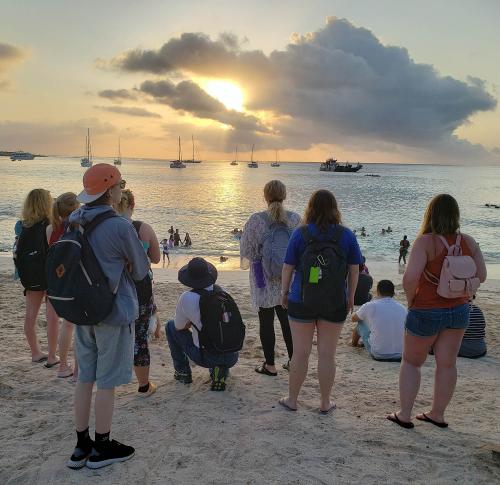
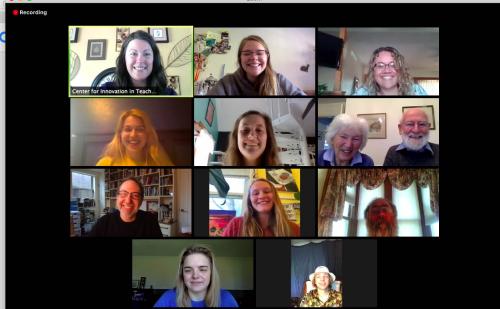
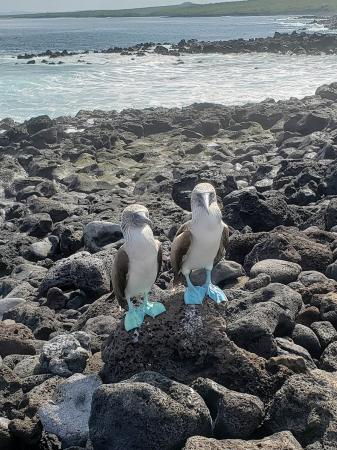
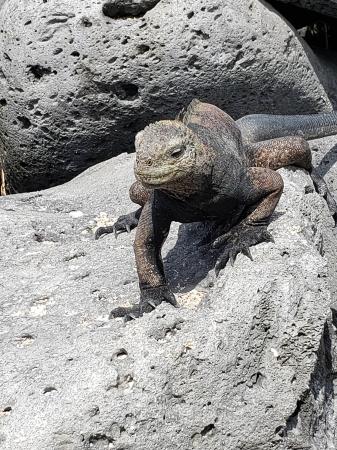
Connect with us: